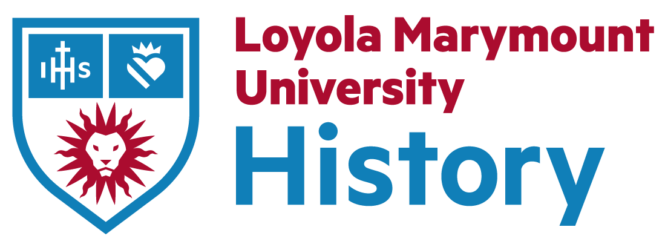Telling History in Public
Welcome to the website for Professor Elizabeth Drummond’s fall 2020 HIST 2910 Telling History in Public course in the Department of History at Loyola Marymount University. Telling History in Public is a historical methods course, with a focus on historical methods, the writing of history, and historical interpretation, taught through the lens of public history.
Public history examines the public uses of the past, including how communities remember, interpret, and present (and represent) their histories and how those historical narratives shape understandings of identity and the present. Public historians often focus on “difficult histories,” where official narratives are complicated by historical investigation, in the process engaging questions about the intersections of history, memory, and identity — about how representations of the past inform our understandings of contemporary issues and public policy. As practice, public history refers to how historians craft and present complex historical narratives for broad audiences, including in documentary and feature films, in popular histories, in historical fiction, in graphic novels, in museums, through monuments and memorials, through heritage tourism, through websites, and so on.
To tie into the 2020-2021 Bellarmine Forum, the main thematic focus this semester has been on the history of prisons and mass incarceration, exploring how prisons and other carceral institutions have become sites of public history and memory; how the history of mass incarceration is presented in film, exhibitions, and online; how an understanding of history can inform public policy discussions about mass incarceration and the judicial system, and more.
This website includes student research essays exploring a variety of issues in the history of policing and prisons, including the origins of policing in slavery, abolitionist and prisoner reform movements, the structures of the criminal justice system, prisoner rights movements, the private prison industry, and popular representations of prisons. Use the tabs at the top to navigate the site and read the students’ essays.
In addition to their research projects, students also completed a series of oral histories with individuals involved with the Loyola Project for the Innocent, including exonerees, lawyers, law students, investigators, and consultants. Visit the oral histories page to learn more.

